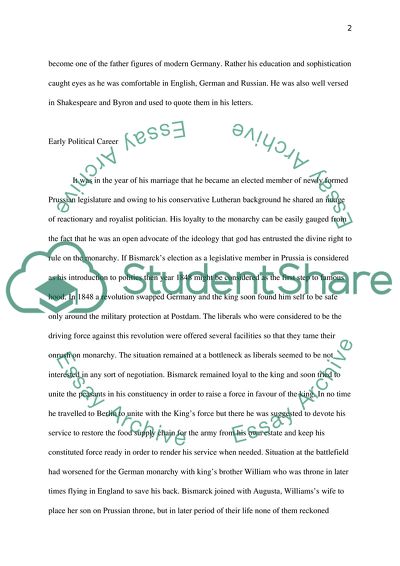Cite this document
(“History (Otto von Bismarck) Essay Example | Topics and Well Written Essays - 2750 words”, n.d.)
History (Otto von Bismarck) Essay Example | Topics and Well Written Essays - 2750 words. Retrieved from https://studentshare.org/miscellaneous/1554548-history-otto-von-bismarck
History (Otto von Bismarck) Essay Example | Topics and Well Written Essays - 2750 words. Retrieved from https://studentshare.org/miscellaneous/1554548-history-otto-von-bismarck
(History (Otto Von Bismarck) Essay Example | Topics and Well Written Essays - 2750 Words)
History (Otto Von Bismarck) Essay Example | Topics and Well Written Essays - 2750 Words. https://studentshare.org/miscellaneous/1554548-history-otto-von-bismarck.
History (Otto Von Bismarck) Essay Example | Topics and Well Written Essays - 2750 Words. https://studentshare.org/miscellaneous/1554548-history-otto-von-bismarck.
“History (Otto Von Bismarck) Essay Example | Topics and Well Written Essays - 2750 Words”, n.d. https://studentshare.org/miscellaneous/1554548-history-otto-von-bismarck.


